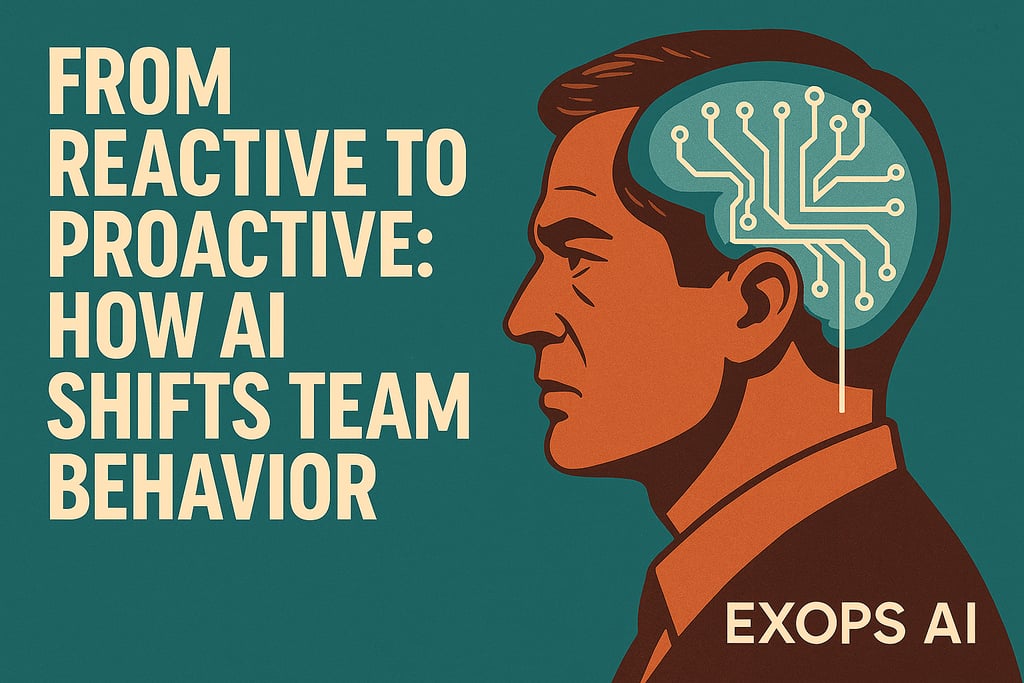
From Reactive to Proactive: How AI Shifts Team Behavior
Most teams react. Few prepare. This blog explores how GPT tools help operations teams shift from reactive response to proactive planning—by encouraging structured thinking, exposing weak logic, and building confidence before something goes wrong.
USE OF GENERATIVE AI
EXOPS AI
7/29/20252 min read



Most teams are trained to respond. Emergencies, delays, deviations—they act fast and correct what went wrong.
But what if the team could see the risk sooner?
That’s the shift GPT tools make possible. By guiding structured thinking, surfacing weak logic, and helping teams plan smarter, AI doesn’t just support decisions—it reshapes behavior.
Reactive Teams Wait. Proactive Teams Prepare.
In many operations, response time is everything. But what happens before a response matters more.
Reactive: Teams solve the issue once it happens
Proactive: Teams predict, simulate, and plan before it does
AI tools give your team the structure to do both.
How GPTs Encourage Proactive Behavior
Better Questions at the Right Time
GPTs prompt teams to consider edge cases, process gaps, or overlooked assumptions—before they become problems.Simulated Thinking Loops
By walking through scenarios (e.g., an equipment failure or miscommunication), GPTs force the brain into preparedness mode—even outside of training.Faster Pattern Recognition
AI tools spot inconsistencies in logic or data. When prompted properly, they help catch risks hiding in plain sight.
Real Examples of Behavior Shifts
Before the shift:
Team runs a simulated handover checklist. Finds 2 unclear responsibilities. Fixes them before they cause a delay.Before the toolbox talk:
Safety lead uses AI to build a risk diagram with alternate pathways—leading to clearer hazard awareness.Before an inspection:
Crew generates a logic-based system walkthrough that highlights potential restart risks no one had mentioned yet.
Why This Works
Most field learning happens after the fact. But GPTs allow structured reflection and planning before an event.
The more teams use them:
The faster they spot vague instructions
The more consistent they become with risk logic
The more confident they are stepping into tasks
Conclusion
You don’t need to overhaul your entire workflow to become proactive. You just need to insert logic, reflection, and structured questioning into daily routines.
GPTs do that quickly, quietly, and consistently.
With time, it becomes second nature—and reaction becomes prevention.
Disclaimer
EXOPS AI tools are designed to support proactive decision-making across operational roles. They do not replace formal hazard assessments, crew debriefs, or regulatory protocols. Use should be integrated with site-specific procedures and peer review.
Author: EXOPS AI L.L.C.
Connect with us: info@exopsai.io | +1 (833) 396-7724
Explore our Custom GPT Store: https://exopsai.io/artificial-intelligence-gpt-store

